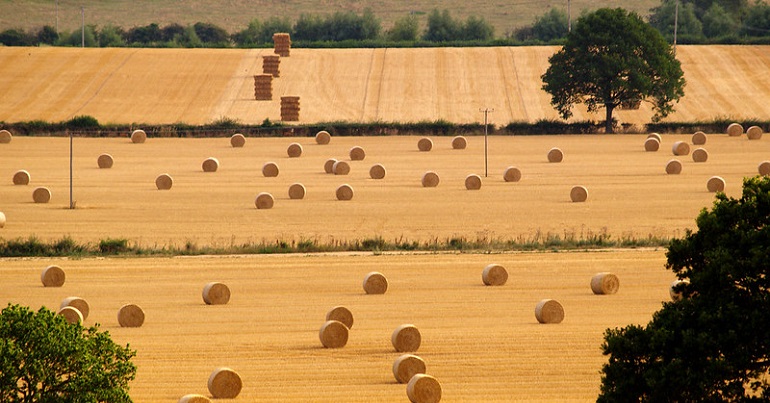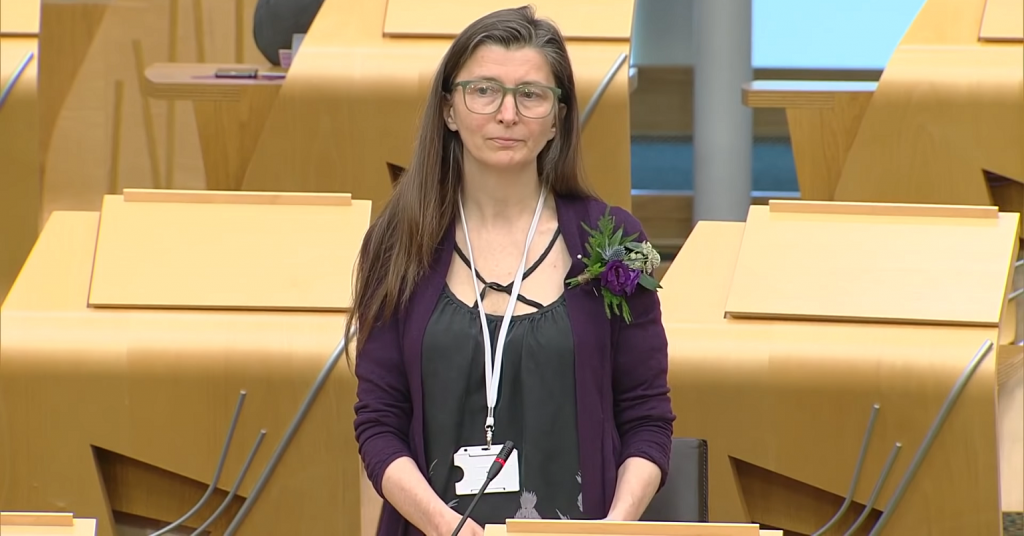How can the Green Party build relationships with the farming sector?

Nowadays, not many people in the UK have personal experience of farming. Despite living in a market town in a rural area, I have only a superficial awareness of agriculture. We all know, though, that farming is hugely important for the environment.
One disappointment of electioneering is that when we meet farming people, they are often hostile to the Green Party. We rarely meet working farmers, because our limited number of active members can’t afford the time to travel to farms. Concentrating on towns and villages, the people we meet are more likely retired from farming.
However, as a local Green Party in a rural area, and with a few new members, we wanted to try active engagement with farmers. Our project is still at the planning stage, but looking around for information turned out to be encouraging. There look to be opportunities for a more positive relationship between Greens and farmers. We’re currently developing our contacts and looking to talk to the local National Farmers’ Union (NFU).
On the party side, there is an active policy working group. It intends to bring a whole new set of policies on food and agriculture to Spring Conference. The working group has benefited from input from active farmers who are party members. It certainly looks as if the new policies bring good ideas and an awareness of the issues faced by farmers.
At the same time, the NFU appears to be making a fresh effort on environmental issues. There are many aspects to this. One important point made by the NFU is that better data is needed on biodiversity. Both Greens and farmers need to encourage wider awareness of the importance of insects and soil quality. The latter is an extremely complex organic feature, with its own ecology.
Birds and mammals make for better pictures than insects or soil. We don’t want to discourage people from helping birds and mammals. But it is vital to have a complete ecological system from tiny bacteria and fungi, through insects to the largest creatures. Not only is all of this essential for biodiversity, it is the reason the climate crisis poses such big risks. Humans may be able to tolerate a few degrees of warming, but we need a healthy environment at every level.
Work on soil quality is at an early stage, and the NFU wants to see more research. It is aware that not all farmers are aware of the vital importance of soil quality. Greens often advocate reductions in the application of chemicals to farm land. The NFU shares this concern. And it acknowledges that significant reductions made in the decade to 2008 have not been sustained, and that new efforts are needed.
The NFU regrets many trends that will have echoes for Greens. Many walls and hedges have been lost. That has removed not only habitat for many creatures, but also routes through which they can travel. Traditional farmsteads are being lost through neglect. Although imported food can be attractive, there are obvious benefits to home grown food.
It is clear that farmers face a range of problems where Greens should support them. Fly tipping can be a costly problem, which emphasises the need for products to have workable plans for end of life handling. Dogs are often allowed to roam free and can cause serious damage. Invasive species can be a big threat. Above all, farmers need to make a living. The economic system can put undue pressure on farmers, making it impossible to make a return without resorting to bad practices.
As in so many other areas of life, government seems incapable of carrying through practical policies. Farmers have been actively promoting anaerobic digesters. But they have been let down by insufficient policy support from government departments and inadequate access to grid networks.
It’s not surprising that there are still some areas of uneasiness. The NFU stresses voluntary compliance with environmental standards, which may or may not work. There is debate over the appropriateness of upland farming. The NFU claims that much woodland is unmanaged or under managed, but are they right to seek to change that? The NFU still talks of biofuels, which are viewed with suspicion by Greens. And above all, there are questions about how far the NFU can carry farmers with them. At the small end of the scale, how many farmers are unaware of NFU initiatives? At the other end, are the big industrial farming concerns really going to put environmental values above profit?
Despite the caveats, there looks to be some room for optimism. Building on updated Green policies and signs of progressive views from the NFU, there looks to be an opportunity to build bridges. We will have to work hard to gain farmers as Green voters, but just achieving a better understanding on both sides would be worthwhile.




Why are we not talking about hemp?!
Some very good points in this, and something that Greens in the South of Scotland have been discussing a fair bit.
One of the key things which Greens need to do is appreciate the diversity within farming. Tenant farmers are different to family owner-occupiers who are different from large feudal landowners or farms owned by investment companies and run by managers. Organic farmers are different to intensive farmers, upland to lowland and livestock to arable.
We also need to stop assuming that farmers don’t vote Green, because it’s simply not true. In our area there are a number of farmers who are SGP members and I know of more who vote Green. Unfortunately there is sometimes a tendency for environmentalists (not just Greens) to indulge in across the board farmer bashing. We need a much more nuanced discussion or we will alienate farmers who are sympathetic and who are trying to do the right things. That doesn’t mean that we should not call our destructive farming practices.
While it’s good to see NFU starting to shift position on things like soil protection, we have to recognise that this is the organisation who encouraged Defra to block two attempts to introduce an EU Soil Framework Directive. Still, better late than never I suppose! NFU/NFUS/NFUW predominantly represents medium to large intensive farmers and is famed for its strong influence on Defra (Does Everything Farmers Representatives Ask) who are right next door to its head office in South Square, London. I would tend to favour Greens building bridges to other farming groups e.g The Soil Association, the Scottish Tenant Farmer’s Association and evening Young Farmers rather than focussing in NFU, although we should talk to them as well.
Farming and land use more widely is going to have to change in the face of climate change (and Brexit). There will be opportunities and threats and some farmers will be able to adapt more than others, partly because some farmers are more open to change than others and partly because some have leases which restrict how they can manage their land. Just as Greens are ushung for a “just transition” to reskill people in the fossil fuel section, so we also need to ensure a just transition for the land-based sector.
A very timely article and matches some of the questions bring asked in our Green / Climate Action groups in Staffordshire Moorlands.
We do need a better understanding of issues affecting our farming communities if we are to ask them for their vote. Our climate action group is also keen to understand what we can ask them to do to work towards our climate emergency objectives